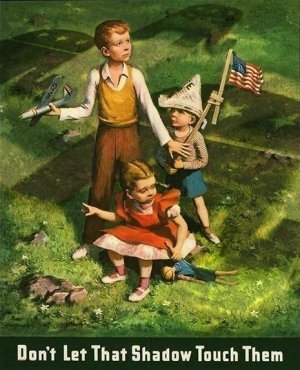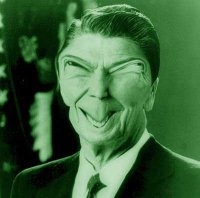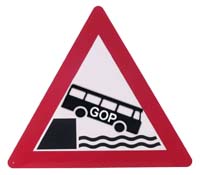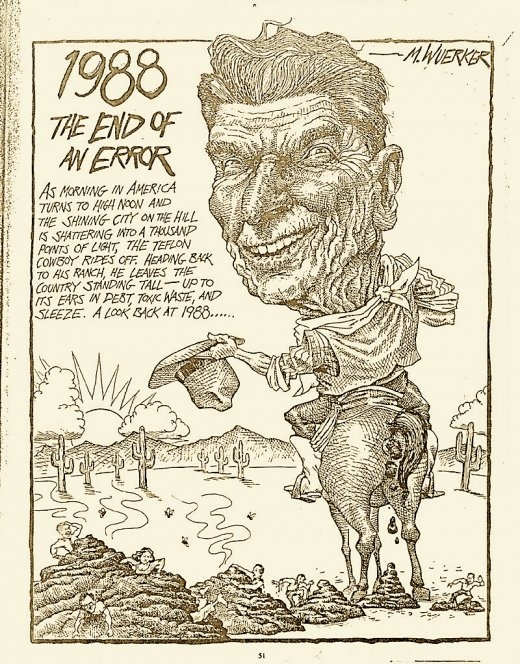
NEW YORK TIMES: At the turn of the 20th century, toward the end of a brutal and surprisingly difficult victory in the Second Boer War, the people of Britain began to contemplate the possibility that theirs was a nation in decline. They worried that London’s big financial sector was draining resources from the industrial economy and wondered whether Britain’s schools were inadequate. In 1905, a new book — a fictional history, set in the year 2005 — appeared under the title, “The Decline and Fall of the British Empire.”
The crisis of confidence led to a sharp political reaction. In the 1906 election, the Liberals ousted the Conservatives in a landslide and ushered in an era of reform. But it did not stave off a slide from economic or political prominence. Within four decades, a much larger country, across an ocean to the west, would clearly supplant Britain as the world’s dominant power.
The United States of today and Britain of 1905 are certainly more different than they are similar. Yet the financial  shocks of the past several weeks — coming on top of an already weak economy and an unpopular war — have created their own crisis of national confidence. On Friday, as the stock market finished one of its worst weeks by falling yet again, to roughly half of its level just one year ago, the Gallup Poll reported that Americans were substantially more pessimistic about the economy than they have been in more than two decades of polling. Nearly 60 percent say the economy is in poor shape, and 90 percent say it’s still getting worse.
shocks of the past several weeks — coming on top of an already weak economy and an unpopular war — have created their own crisis of national confidence. On Friday, as the stock market finished one of its worst weeks by falling yet again, to roughly half of its level just one year ago, the Gallup Poll reported that Americans were substantially more pessimistic about the economy than they have been in more than two decades of polling. Nearly 60 percent say the economy is in poor shape, and 90 percent say it’s still getting worse.
“One thing seems probable to me,” Peer Steinbrück, the German finance minister, said recently. “The U.S. will lose its status as the superpower of the global financial system.” At another time, that remark might have sounded like mere nationalist bluster. Right now, it doesn’t seem so ridiculous to ask whether 2008 will come to be seen as the first year of a distinctly non-American century. MORE
MO DOWD: The decline and fall of the American Empire echoes the experience of the Romans, who also tumbled into the trap of becoming overleveraged empire hussies. As our sand-castle economy washes away under the tide of bad gambles and debts, this most self-indulgent society lurches toward stoicism (even bankrupt Iceland gives us the cold shoulder and turns to a solvent superpower). It’s going to require more than giving up constant infusions of stocks, Starbucks and Botox. MORE
 DAVID BROOKS: Over the past few decades, the Republican Party has driven away people who live in cities, in highly educated regions and on the coasts. This expulsion has had many causes. But the big one is this: Republican political tacticians decided to mobilize their coalition with a form of social class warfare. Democrats kept nominating coastal pointy-heads like Michael Dukakis so Republicans attacked coastal pointy-heads. Over the past 15 years, the same argument has been heard from a thousand politicians and a hundred television and talk-radio jocks. The nation is divided between the wholesome Joe Sixpacks in the heartland and the oversophisticated, overeducated, oversecularized denizens of the coasts.
DAVID BROOKS: Over the past few decades, the Republican Party has driven away people who live in cities, in highly educated regions and on the coasts. This expulsion has had many causes. But the big one is this: Republican political tacticians decided to mobilize their coalition with a form of social class warfare. Democrats kept nominating coastal pointy-heads like Michael Dukakis so Republicans attacked coastal pointy-heads. Over the past 15 years, the same argument has been heard from a thousand politicians and a hundred television and talk-radio jocks. The nation is divided between the wholesome Joe Sixpacks in the heartland and the oversophisticated, overeducated, oversecularized denizens of the coasts.
What had been a disdain for liberal intellectuals slipped into a disdain for the educated class as a whole. The liberals had coastal condescension, so the conservatives developed their own anti-elitism, with mirror-image categories and mirror-image resentments, but with the same corrosive effect. The political effects of this trend have been obvious. Republicans have alienated the highly educated regions — Silicon Valley, northern Virginia, the suburbs outside of New York, Philadelphia, Chicago and Raleigh-Durham. The West Coast and the Northeast are mostly gone. The Republicans have alienated whole professions. Lawyers now donate to the Democratic Party over the Republican Party at 4-to-1 rates. With doctors, it’s 2-to-1. With tech executives, it’s 5-to-1. With investment bankers, it’s 2-to-1. It took talent for Republicans to lose the banking community. MORE
BOB HERBERT: Voting has consequences. I don’t for a moment think that the Democratic Party has been free of egregious problems. But there are two things I find remarkable about the G.O.P., and especially its more conservative  wing, which is now about all there is. The first is how wrong conservative Republicans have been on so many profoundly important matters for so many years. The second is how the G.O.P. has nevertheless been able to persuade so many voters of modest means that its wrongheaded, favor-the-rich, country-be-damned approach was not only good for working Americans, but was the patriotic way to go.
wing, which is now about all there is. The first is how wrong conservative Republicans have been on so many profoundly important matters for so many years. The second is how the G.O.P. has nevertheless been able to persuade so many voters of modest means that its wrongheaded, favor-the-rich, country-be-damned approach was not only good for working Americans, but was the patriotic way to go.
Americans, including the Joe Sixpacks, soccer moms and hockey moms, were repeatedly told that the benefits lavished on the highfliers would trickle down to them. Someday. Just as they were wrong about trickle down, conservative Republican politicians and their closest buddies in the commentariat have been wrong on one important national issue after another, from Social Security (conservatives opposed it from the start and have been trying to undermine it ever since) to Medicare (Ronald Reagan saw it as the first wave of socialism) to the environment, energy policy and global warming.
Mr. Reagan, the ultimate political hero of so many Republicans, opposed the Civil Rights Act of 1964 and the Voting Rights Act of 1965. In response to the historic Brown v. Board of Education school-desegregation ruling, William F.  Buckley, the ultimate intellectual hero of so many Republicans, asserted that whites, being superior, were well within their rights to discriminate against blacks. “The White community is so entitled,” he wrote, “because, for the time being, it is the advanced race…” He would later repudiate that sentiment, but only after it was clear that his racist view was harmful to himself. The G.O.P. has done a great job masking the terrible consequences of much that it has stood for over the decades. Now the mask has slipped. As we survey the wreckage of the American economy and the real-life suffering associated with the financial crackup of 2008, it would be well for voters to draw upon the lessons of history and think more seriously about the consequences of the ballots they may cast in the future. MORE
Buckley, the ultimate intellectual hero of so many Republicans, asserted that whites, being superior, were well within their rights to discriminate against blacks. “The White community is so entitled,” he wrote, “because, for the time being, it is the advanced race…” He would later repudiate that sentiment, but only after it was clear that his racist view was harmful to himself. The G.O.P. has done a great job masking the terrible consequences of much that it has stood for over the decades. Now the mask has slipped. As we survey the wreckage of the American economy and the real-life suffering associated with the financial crackup of 2008, it would be well for voters to draw upon the lessons of history and think more seriously about the consequences of the ballots they may cast in the future. MORE
RELATED: The More Things Change…

